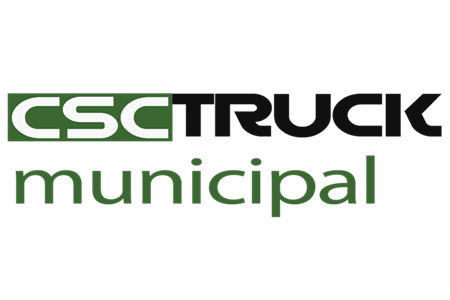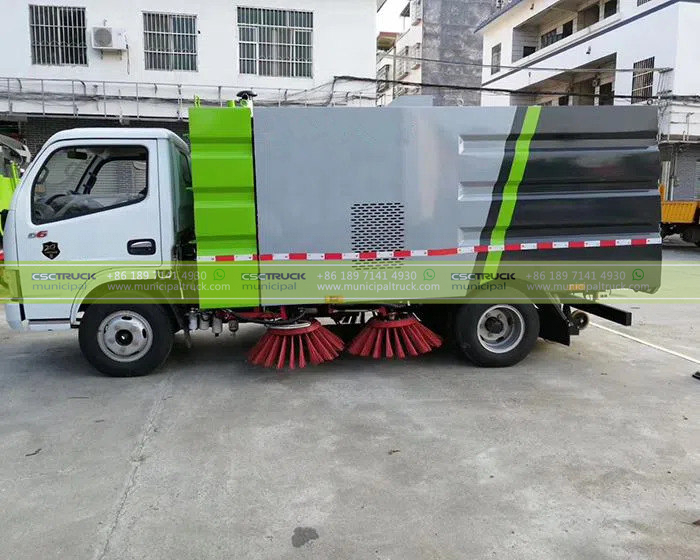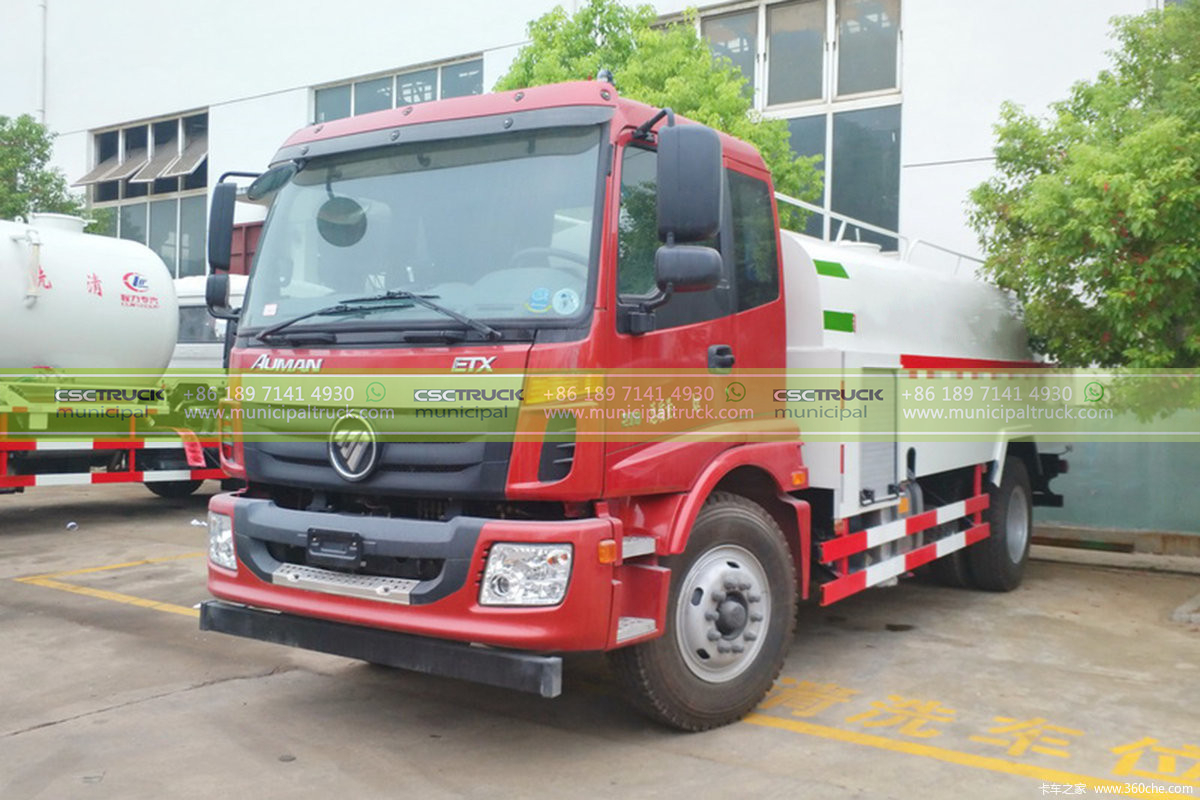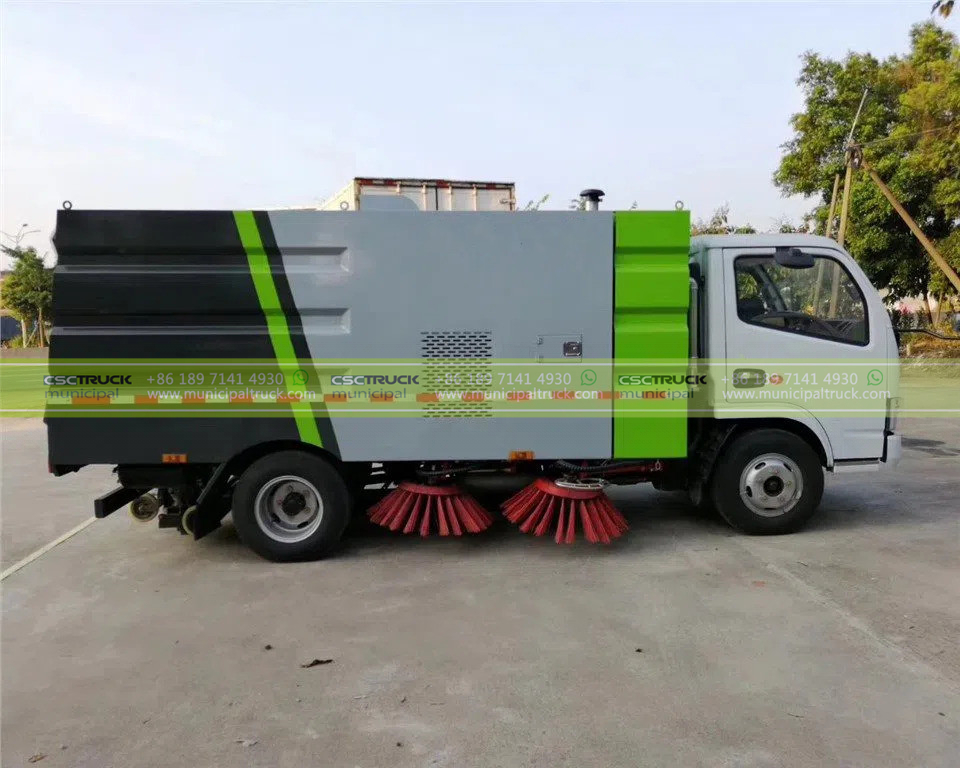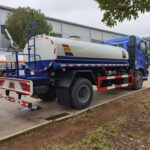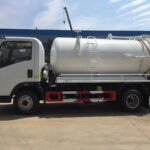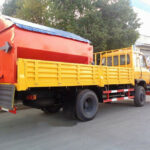Maintaining clean and safe highways is a crucial part of ensuring smooth traffic flow, safety, and aesthetic appeal in urban and rural areas alike. The effective cleaning of streets and roads not only contributes to the overall visual appeal of cities and towns but also plays a vital role in preserving the integrity of the infrastructure. Road sweeper trucks are the unsung heroes of this vital process, providing an essential service that keeps highways clean, safe, and clear of debris.
These specialized vehicles are designed to handle a wide range of cleaning tasks, from clearing debris and litter to removing dirt and sand buildup that can cause hazardous driving conditions. In this blog post, we will explore the importance of road sweeper trucks, the features that make them ideal for highway maintenance, and how they contribute to cleaner and safer roadways.
The Importance of Road Sweeper Trucks in Highway Maintenance
Highways, especially those in busy urban environments, are constantly exposed to various types of debris, dirt, and pollutants. From leaves and litter to sand, gravel, and even oil spills, highways require frequent cleaning to maintain optimal driving conditions. Road sweeper trucks are specially equipped to handle these tasks, providing an efficient and effective way to keep roads free of debris, improving both safety and aesthetics.
Enhancing Road Safety Through Regular Sweeping
The primary role of road sweeper trucks is to ensure that highways are free from hazards that could potentially cause accidents. Loose debris, such as gravel, leaves, or tire fragments, can create slippery conditions, increasing the likelihood of accidents, especially during adverse weather conditions. By regularly sweeping highways, road sweeper trucks reduce the risk of such hazards, creating safer environments for drivers.
In addition, road sweeper trucks help eliminate the accumulation of sand, dirt, and grime that can obstruct drainage systems, causing water to pool on the roads. Standing water can lead to hydroplaning, posing a serious danger to vehicles. By removing debris and keeping drains clear, road sweeper trucks help prevent water buildup, making the roads safer, especially during rainstorms.
Improving Visibility for Drivers
Another important role of road sweeper trucks is enhancing visibility for drivers. As debris collects on highways, it can obscure road signs, lane markings, and other crucial visual cues. In areas with heavy traffic or complex intersections, visibility is key to ensuring that drivers can make safe decisions. By clearing debris and dirt, road sweeper trucks improve the visibility of these crucial elements, reducing confusion and the potential for accidents.
The sweeping process also includes cleaning curbs and gutters, which helps prevent dirt from accumulating in these areas and ensures that the lines on the road are clearly visible. Clean, well-marked roads are essential for maintaining traffic flow and minimizing accidents, making road sweeper trucks a key tool for highway safety.
Key Features of Road Sweeper Trucks
Road sweeper trucks are equipped with various features that make them suitable for cleaning and maintaining highways efficiently. From powerful vacuum systems to specialized brushes, these trucks are designed to handle the demanding task of road cleaning on a large scale. Here are some of the key features that make road sweeper trucks ideal for this work.
High-Powered Vacuum Systems for Efficient Debris Collection
One of the standout features of road sweeper trucks is their high-powered vacuum systems, which play a crucial role in collecting debris. The vacuum system creates suction that pulls dirt, gravel, and litter into the truck’s waste compartment. This feature is particularly important in urban areas and along highways, where debris is often spread across large areas.
By using a vacuum system, road sweeper trucks are able to clean more effectively, removing debris quickly and without leaving a trail of dust behind. The vacuum system ensures that debris is collected and contained, preventing it from being blown away by traffic or wind.
Rotating Brushes for Comprehensive Cleaning
In addition to vacuum systems, road sweeper trucks are equipped with rotating brushes that help dislodge dirt and debris from the road surface. These brushes are adjustable, allowing the truck to clean both the road surface and the curbs or gutters. The rotating brushes sweep the debris into the truck’s waste compartment, where it is then vacuumed up.
The combination of brushes and vacuum systems makes road sweeper trucks highly efficient at cleaning large sections of road quickly and thoroughly. The brushes also ensure that even stubborn debris, such as sand and gravel, is removed from the road surface, leaving the area clean and free of obstructions.
Water Spraying Systems for Dust Control
In areas with high levels of dust, road sweeper trucks are equipped with water spraying systems that help control the dust generated during the cleaning process. As the brushes rotate and sweep debris, dust particles can become airborne, reducing visibility for drivers and creating environmental concerns. By spraying water on the road surface during sweeping, road sweeper trucks can keep dust to a minimum, ensuring a cleaner environment for both drivers and pedestrians.
Water spraying systems also help loosen stubborn debris, making it easier for the brushes to sweep it up and for the vacuum system to collect it. This added layer of efficiency makes road sweeper trucks more effective in a wider range of conditions, from dry, dusty roads to wet, muddy surfaces.
How Road Sweeper Trucks Compare to Other Street Cleaning Vehicles
While road sweeper trucks are specifically designed for sweeping highways and major roads, other types of street cleaning vehicles, such as street sweeper trucks, are used for cleaning urban streets and residential areas. Though both types of vehicles share some similarities, there are important differences in terms of design and functionality.
Road Sweeper Trucks vs. Street Sweeper Trucks
The key difference between road sweeper trucks and street sweeper trucks lies in the scale of their operations. Road sweeper trucks are built to clean large, wide highways and roads, which requires a more powerful system and larger waste collection compartments. These trucks are also designed to handle a greater volume of debris and can sweep vast stretches of road without having to stop frequently.
On the other hand, street sweeper trucks are often smaller and more maneuverable, designed for cleaning urban streets and narrow roads. While they share similar features, such as rotating brushes and vacuum systems, street sweeper trucks are better suited for residential neighborhoods and city streets, where traffic is slower and the roads are more congested.
Specialized Sweeping for Specific Road Types
In some cases, highways may require a more specialized form of sweeping due to the nature of the road surface. For instance, road sweeper trucks are often used on highways with high traffic volumes or roads with rough, uneven surfaces, where regular sweeping is needed to maintain safety and appearance. These trucks are equipped to handle the unique challenges of highway cleaning, including the need to clear larger debris, such as tire fragments, litter, and sand.
Street sweeper trucks, however, are often used in more controlled environments, such as city streets, where the primary concern is maintaining cleanliness and ensuring that the roads are free from smaller debris like dust, leaves, and litter. While street sweeper trucks are effective for smaller, more localized cleaning, road sweeper trucks are designed for the heavy-duty work of highway maintenance, ensuring that long stretches of road remain clean and clear of obstacles.
Environmental Benefits of Road Sweeper Trucks
In addition to their ability to improve road safety and cleanliness, road sweeper trucks also offer significant environmental benefits. By regularly cleaning highways and streets, these trucks help reduce pollution and prevent the buildup of harmful contaminants in the environment.
Preventing Debris and Litter from Entering Waterways
One of the main environmental benefits of road sweeper trucks is their ability to prevent debris and litter from entering stormwater drains and eventually flowing into local waterways. As debris such as plastic bottles, tire fragments, and other pollutants accumulate on roadways, they can be washed into storm drains during rainstorms, ultimately polluting rivers, lakes, and oceans. By sweeping debris off the road before it can enter the drainage system, road sweeper trucks help protect the local ecosystem and reduce water pollution.
Reducing Airborne Pollution
In addition to preventing litter from reaching water sources, road sweeper trucks also help reduce airborne pollution. Dust, dirt, and pollutants on road surfaces can be stirred up by traffic, creating unhealthy air quality in urban areas. By using water sprays and efficient vacuum systems, road sweeper trucks minimize the amount of dust that is released into the air, improving air quality and reducing the negative effects of pollution on both the environment and public health.
Road sweeper trucks are indispensable tools for maintaining clean, safe, and clear highways. With their powerful vacuum systems, rotating brushes, and dust control features, these trucks help improve road safety, enhance visibility, and protect the environment. By investing in regular road sweeping, communities can ensure that their highways remain safe, clean, and well-maintained for years to come.
